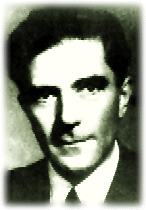|
ZOLTÁN BAY (1900 - 1992) |
 |
Bay was born in Gyulavári. Following his attendance at the Presbyterian Boarding-school in Debrecen, he continued his studies at the Pázmány Péter Academy of Sciences. He also obtained his Ph. D. degree there.
Following a four-year study tour in Berlin, from 1930 he worked at the University of Szeged as a professor of theoretical physics.
He developed the Hungarian radar in 1936 at the laboratory of the Tungsram. As the head of the laboratory he developed several patents in the field of high voltage gas discharge tubes, fluorescent and vacuum tubes. He lectured between 1938 and 1948 at the Budapest Technical University.
With his research team in 1946 he observed the reflection of radar beams aimed at the moon, which was considered revolutionary in space research at that time. Between 1948 and 1955 he worked as a professor of experimental physics at the University of Washington, and from 1955 to 1972 he was a departmental head at the U.S. Bureau of Standards. Subsequently he became a professor at the American University. In 1981 the Hungarian Academy of Sciences and the Eötvös Loránd Society of Physics elected Bay honorary member. He achieved considerable success in the physics of active gases, and worked out the method of fast atom counting, operating on the principle of secondary electron multiplying. He justified by experiment that the universal system of measuring time and length based on the speed of light was in fact valid. On his 90th birthday he was decorated with the The Order of the Hungarian Republic adorned with rubies. He passed away in Washington on October 4th, 1992.

